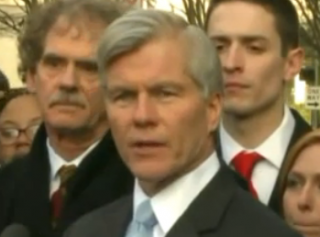
“Because the jury was not correctly instructed on the meaning of ‘official act,’ it may have convicted Governor McDonnell for conduct that is not unlawful. For that reason, we cannot conclude that the errors in the jury instructions were ‘harmless beyond a reasonable doubt.’ We accordingly vacate Governor McDonnell’s convictions,” Chief Justice John Roberts wrote.
The court held:
An “official act” is a decision or action on a “question, matter,cause, suit, proceeding or controversy.” That question or matter must involve a formal exercise of governmental power, and must also be something specific and focused that is “pending” or “may by law be brought” before a public official. To qualify as an “official act,” the public official must make a decision or take an action on that question or matter, or agree to do so. Setting up a meeting, talking to an- other official, or organizing an event—without more—does not fit that definition of “official act.”
The Supreme Court said, according to the law, the Government must identify a “question, matter, cause, suit, proceeding or controversy” that “may at any time be pending” or “may by law be brought” before a public official. Second, according to the opinion, the Government must prove that the public official made a decision or took an action “on” that “question, matter, cause, suit, proceeding or con-troversy,” or agreed to do so.